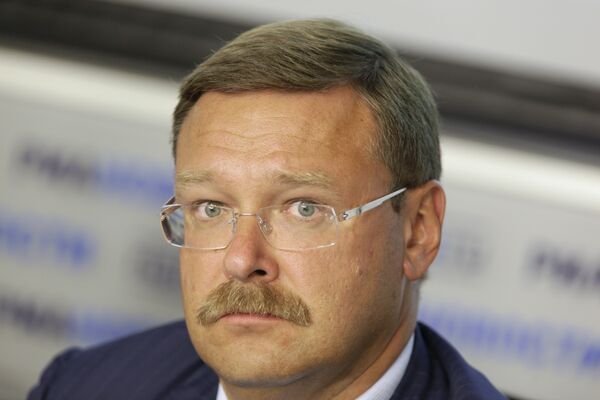A new Russian-U.S. arms reduction treaty is unlikely to contain any missile defense restrictions, a senior Russian lawmaker told journalists on Wednesday.
Russia and the U.S. are seeking to replace the Strategic Arms Reduction Treaty (START 1) - the cornerstone of post-Cold War arms control, which expired on December 5 last year. Russia insists that there is a direct link between cutting the nuclear arsenals of the two countries and curbs on their ability to build missile defense systems.
"Our initial idea was to specify the issue in the new arms reduction treaty. Judging by the current negotiations, it would be quite difficult. Our U.S. partners argue that such details would hamper the document's ratification in the Senate," Konstantin Kosachyov said.
The presidents of Russia and the U.S., Barack Obama and Dmitry Medvedev, pledged at their first meeting in April 2009 to replace the START I treaty as part of broader efforts to "reset" bilateral ties strained in recent years.
The new treaty's outline, as agreed on by the Russian and U.S. leaders, includes cutting nuclear arsenals to 1,500-1,675 operational warheads and delivery vehicles to 500-1,000.
Kosachyov heads a delegation of members of the State Duma International Affairs Committee who are on a visit to Washington for the fifth joint session with Congressmen, members of the U.S. House Foreign Affairs Committee.
WASHINGTON, February 24 (RIA Novosti)




